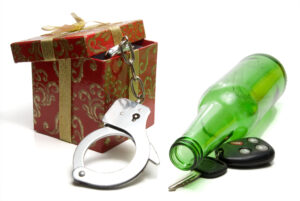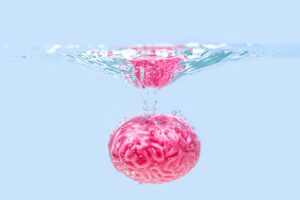From advertisements to social gatherings, alcohol is everywhere. People use it as a social lubricant, a stress reliever, and a centerpiece at celebrations. It’s such a big part of life that the line between normal social drinking and problematic drinking often blurs.
While there’s no clear line between social and problematic drinking, understanding the physical, mental, and behavioral signs can help clarify the difference. This knowledge can help people who need support get it, before alcohol use becomes a bigger issue.
Call 888.903.9898 to learn more about La Fuente’s alcohol treatment programs.
What Is Social Drinking?
Social drinking has been a part of human culture for millennia. In ancient Mesopotamia, people gathered to drink beer from communal bowls. During the Middle Ages, European monasteries became centers of beer brewing. In 18th-century England, bars were hubs for political and philosophical discussions.
Today, whether it’s sake in Japan, vodka in Russia, or beer at an American barbecue, alcoholic beverages are social lubricants, helping people relax, open up, and connect. While there are potential upsides to alcohol, the key to healthy social drinking lies in moderation and control.
A social drinker enjoys an occasional drink or two at parties or celebrations, but getting drunk isn’t their goal. They remain in control of their thoughts, feelings, and actions when drinking. Because of this balanced approach, alcohol doesn’t cause problems in their daily life or lead to serious health issues.
What Is Problematic Drinking?
Problem drinking goes beyond social drinking and involves risky or unhealthy drinking behaviors that lead to negative experiences.
People who drink problematically often use alcohol to change how they feel. They might drink to:
- Feel more at ease in social situations
- Boost their mood
- Escape from worries or problems
- Feel more confident or important
While problem drinkers aren’t physically dependent on alcohol, they may struggle to stop because they believe drinking helps them in some way.
Problem drinking doesn’t usually require intensive rehab, but people in this category may benefit from therapy to help modify their drinking behaviors or stop altogether.
Signs of a drinking problem
- Missing class or work due to drinking
- Avoiding social situations, family, and friends to drink alone
- Experiencing episodes of depression, anger, or violence
- Taking risks
- Spending too much money and creating financial problems
- Having unsafe intercourse
- Not knowing when to stop drinking, getting drunk, or blacking out
- Driving under the influence
- Getting arrested due to drinking-related behavior
- Losing relationships
What Is Alcohol Abuse?
Problem drinking and alcoholism are similar. The difference is that alcoholism involves a physical and psychological addiction to alcohol. When someone with alcoholism stops drinking, they may experience withdrawal symptoms such as:
- Anxiety
- Nausea
- Insomnia
- Abdominal pain
- Hallucinations
- Increased body temperature
- Mental confusion
- Unusual heart rate
- Alcohol withdrawal seizures
- Delirium tremens
Other risks include seizures, heart attacks, and strokes. Long-term heavy drinking can lead to lasting health issues like liver disease, various cancers (mouth, throat, breast, liver, and esophagus), and a weakened immune system.
Signs of alcohol abuse
- Inability to control or stop drinking once started
- Persistent thoughts about alcohol
- High alcohol tolerance requiring larger amounts to feel the effects
- Behaving differently when drinking
- Drinking before social events or parties
- Denying drinking problems due to continued professional or personal success
- Using alcohol as a reward
- Frequent binge drinking episodes and blackouts
- Taking risks while under the influence
- Difficulty imagining life without alcohol
- Regularly socializing with other heavy drinkers
- Experiencing shame or guilt over drunken behavior
- Relying on alcohol to cope with stress or negative emotions
How Alcohol Dependency Is Treated
Help for alcohol dependency comes in two main forms: inpatient and outpatient treatment.
Inpatient treatment offers a highly structured, intensive care program. It’s best for those with severe alcohol problems or who need round-the-clock support. These programs include detox, which is crucial for safely stopping alcohol use. Quitting alcohol suddenly can be dangerous, leading to severe withdrawal symptoms like hallucinations, seizures, or even death.
For milder cases, outpatient programs provide a more flexible option. These typically involve treatment sessions several times a week, usually three to six days. They allow people to maintain their daily routines while getting help.
After formal treatment, many find ongoing support through peer-led recovery groups. These can be valuable in maintaining sobriety and adjusting to an alcohol-free life.
Get Help at La Fuente Hollywood Treatment Center
LGBTQ+ individuals face a higher risk of alcohol misuse and addiction. Studies show that lesbian, gay, and bisexual people are twice as likely to have an addiction than their straight peers, while transgender individuals face nearly four times the risk.
Many in the LGBTQ+ community turn to alcohol to cope with discrimination, manage social anxiety, or deal with depression related to their sexual orientation or gender identity. Whatever the reason, problematic drinking is a significant issue in the LGBTQ+ community.
La Fuente Hollywood Treatment Center recognizes these unique challenges and is dedicated to providing LGBTQ-affirmative substance abuse treatment. We offer inpatient and outpatient programs tailored to the specific needs of the LGBTQ+ community. Our staff, many of whom are LGBTQ+ themselves, provide understanding and compassion throughout the recovery process.
If you or someone you love is struggling with alcohol issues, contact La Fuente Hollywood Treatment Center at 888.903.9898.




